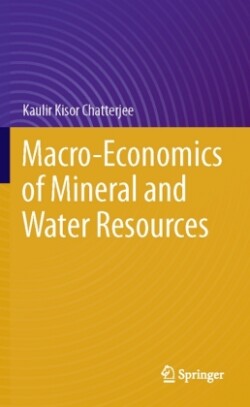This book highlights the indispensability of minerals, the vulnerability of humans and issues faced by governments around the world regarding the management of natural resources. It addresses the growing land-ecology-mining conflicts, energy security and water policies of different countries bringing these issues into focus and critically analyzing them. The book discusses the role of governments regarding the security-centric issues pertaining to sustainability of mineral supply and the welfare-centric aspects of sustainable development of mineral resources. The latter includes the current trends for corporate social responsibility, political viability of mining projects, industrial ethics, human health and human resource development.
The Annexure I is unique: It is a list of 925 familiar consumer products and processes with the names of the minerals, metals and rocks as well as the intermediate chemicals and alloys that go into the making of that product or process alongside each. Annexure II is an up-to-date, exhaustive list of about 835 minerals, metals, rocks and intermediate chemicals and alloys and against each of them is a list of the names of the end products and processes for which they are used. These two annexures will serve as a day-to-day reference source for teachers, students and professionals concerned with minerals as well as other interested readers. The book will be useful to any university/institution with undergraduate and post-graduate teaching/research facilities and libraries in the field of geology, mining, mineral economics, planning and natural-resource management.
About the Author
Kaulir Kisor Chatterjee studied Applied Geology at the Indian School of Mines, Dhanbad for his post-graduate and PhD degrees. He served in the Indian Bureau of Mines for over three decades and retired in early 2004, as Chief Mineral Economist. Post-retirement, he has occupied himself mostly with writing, teachingand lecturing in various institutions of repute in India on the subject of mineral economics. Besides 50 technical papers, he has authored eight books. He has worked in various Government committees and expert groups and was involved in organization of national mineral inventory; UN Framework Classification system of mineral resources; rationalisation of the mineral taxation, royalty and mineral legislation framework in India. He has been examiner and member of selection boards of UPSC, India and is also a recognised guide of the Nagpur University for doctoral research. His resume has been included in the Marquis Who Is Who of the World and in the 2000 Outstanding Intellectuals of the 21st Century, Cambridge.

















